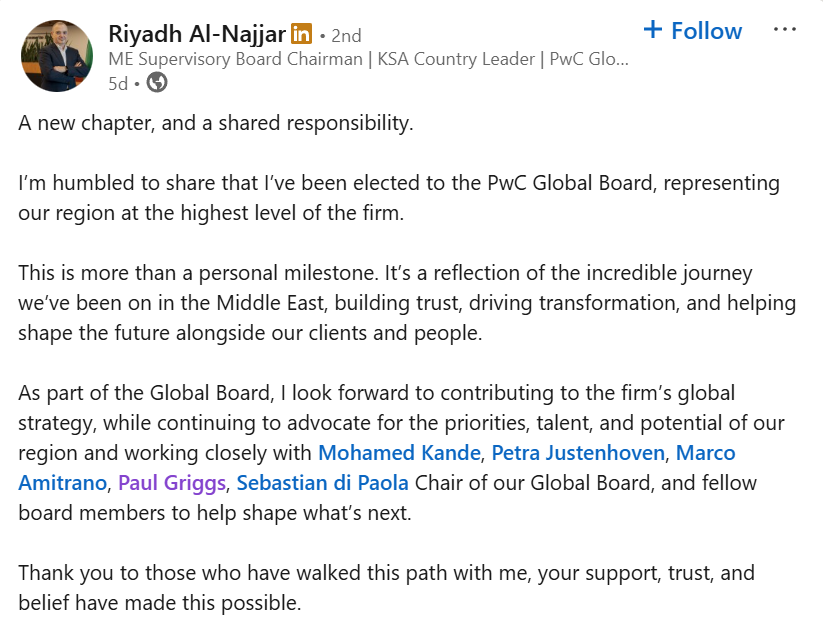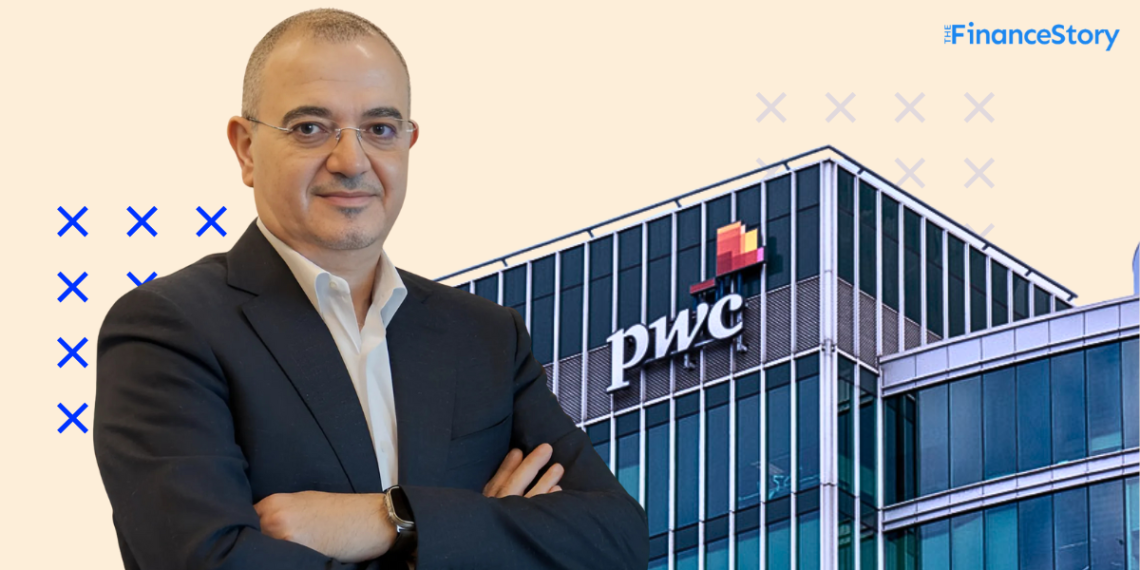- Riyadh Al Najjar, Chairman of PwC Middle East and Country Senior Partner for Saudi Arabia, has joined PwC’s Global Board.
- Why’s this a big deal? Until now, the PwC Global Board has been dominated by leaders from North America and Europe (15 out of 18 members, to be exact).
- With Riyadh’s appointment, the Middle East is now louder than ever at the global table.
Who is Riyadh Al Najjar?
Since joining in 2009, Riyadh Al Najjar has climbed fast through the ranks.
He now leads 12,000+ staff across 12 countries, with 30+ offices in the Middle East.
Riyadh is a key driver behind the region’s growth, fully aligned with Saudi Vision 2030.
Riyadh shared his thoughts:
“Honoured to join the Global Board. This is about building trust, driving transformation, and aligning PwC’s global ambitions with the Middle East’s economic vision. We’re here to deliver lasting impact.”

What’s the PwC Global Board really about?
It is led by Sebastian di Paola, Chairman of the Board of PwC Switzerland and PwC Europe’s Supervisory Board, and this Board calls the shots for 370,000 PwC employees in over 140 countries.
What does the PwC Global Board do?
- Steers PwC’s global strategy and growth
- Drives sustainable transformation across 149 countries
- Aligns member firms for seamless execution
- Ensures accountability and long-term value creation
If you remember…
In early 2025, PwC Middle East got hit hard.
Why? Saudi Arabia’s Public Investment Fund (PIF), one of PwC’s biggest clients, banned the firm from new advisory work.
That was a major blow.
But instead of backing down, PwC is doubling down on the Middle East.
This isn’t damage control, but more of a strategic decision by PwC.
Also read: PwC exit low-performing markets & cut ties with risky clients
Why is PwC focusing more on the Middle East?
The Middle East consulting market is the fastest-growing market and reached $3.2 billion in 2023.
PwC Middle East revenue jumped 26% year-on-year, powered by mega projects linked to Vision 2030.
Sovereign funds like PIF, Mubadala, and ADQ are funnelling billions into diversified sectors, all of which are hungry for top-tier advisory expertise.
FAQs:
Who is Riyadh Al Najjar?
Riyadh Al Najjar is the Chairman of PwC Middle East and Country Senior Partner for Saudi Arabia. As of 2025, he is also a member of PwC’s Global Board, representing the Middle East at the highest strategic level.
How many countries does PwC Middle East operate in?
PwC Middle East operates across 12 countries with over 12,000 professionals and 30+ offices, making it one of the most influential consulting networks in the region.






